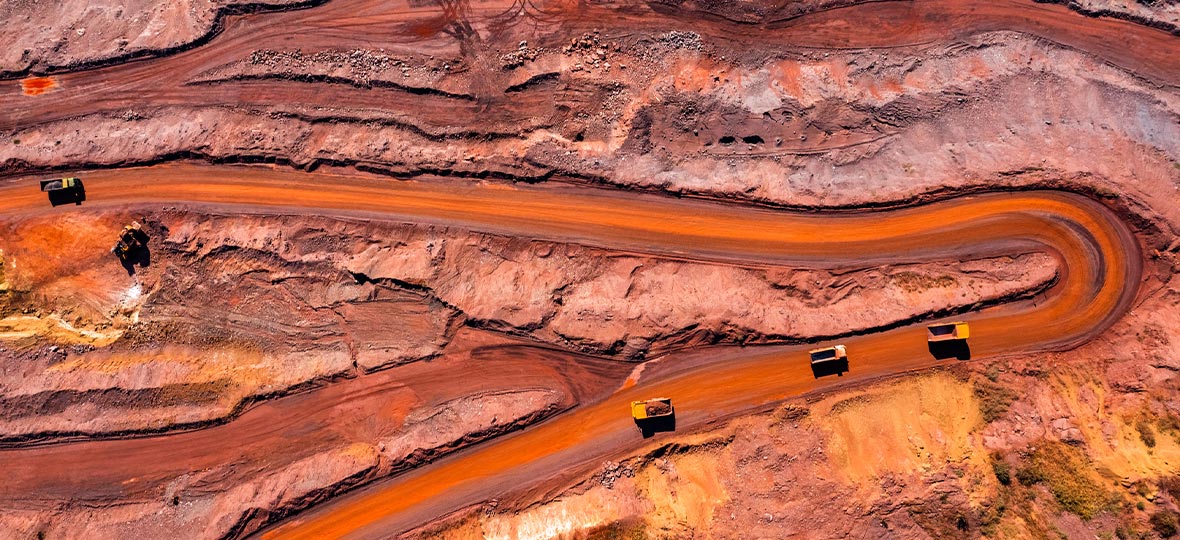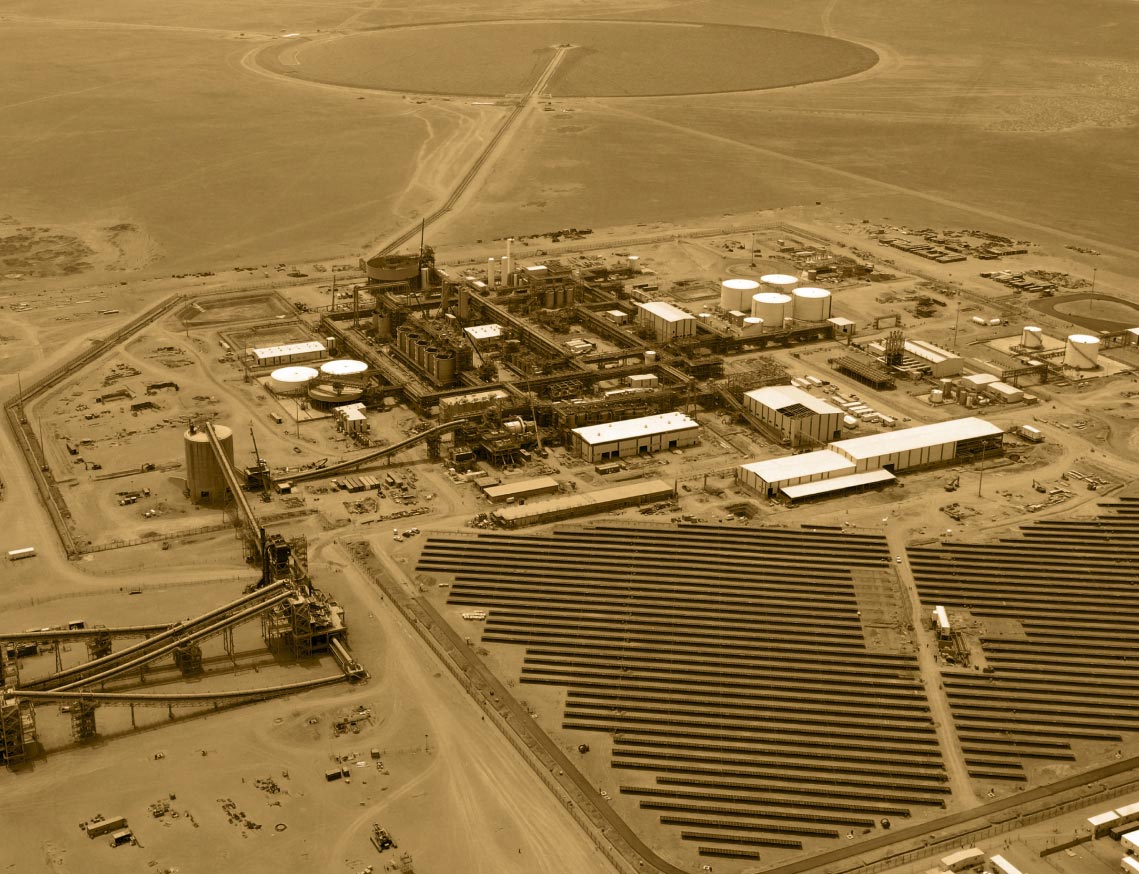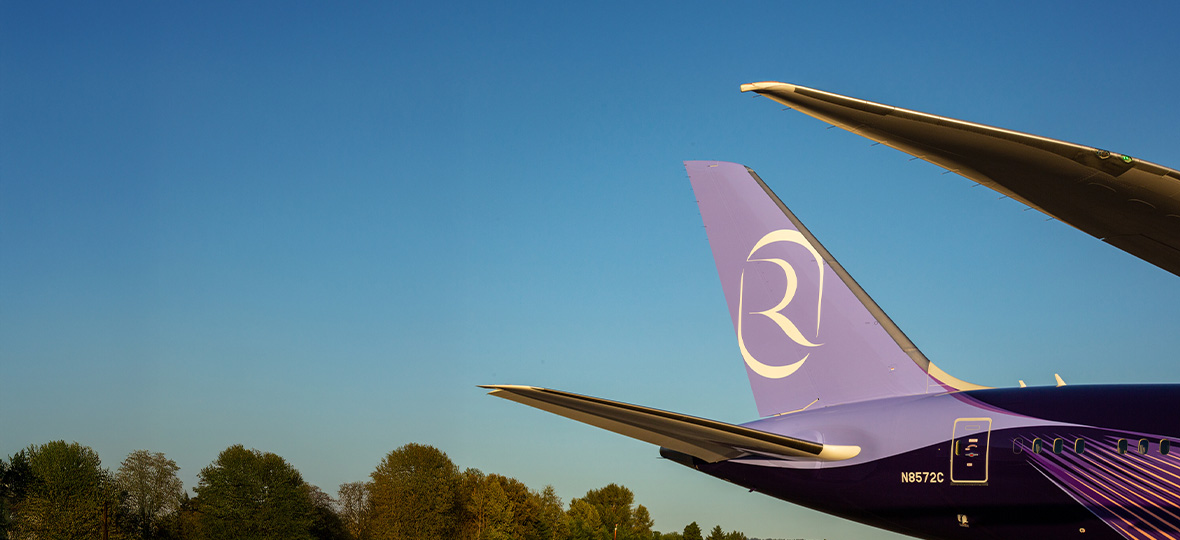How PIF is shaping the future of Saudi Arabia’s mining industry

As the world transitions to cleaner energy sources, demand for the minerals and metals critical to that shift is accelerating. Clean energy technologies such as solar panels, wind farms and electric vehicles (EVs) require between four and 10 times more mineral resources, from copper to silicon carbide, than their fossil fuel-based counterparts. The International Energy Agency estimates that production of the newly in-demand minerals such as lithium, cobalt and rare-earth elements will need to increase by up to six times by 2040 to meet the goals of the Paris agreement.
“The market view is that in the next 25 years we are going to need more copper than has been mined in the history of humankind,” says Richard Horrocks-Taylor, Head of Metals and Mining at Standard Chartered Bank. “We’ve got a big mountain to climb in terms of production requirements.”
For Saudi Arabia, the energy transition is a key driver of its economic diversification, a shift outlined in the country’s Vision 2030. Presenting itself as an “investment engine driving economic transformation”, PIF is determined to re-engineer the country’s economy around that new reality, while also becoming a force in the new global economies it is generating. And it is laying the groundwork for Saudi Arabia to become a mining and critical materials powerhouse.
Muhammed AlDawood, Head of Industrials and Mining Sector, MENA Investments, PIF, explains PIF’s approach: “We are an impactful investor and a source of economic diversification for Saudi Arabia. It’s a world-scale problem and there is an opportunity to think on a global scale.”
Exploration and opportunity
Saudi Arabia, of course, has some experience of exploration and it has already successfully shifted its attention beyond oil. Over the last decade the mining firm Ma’aden, majority-owned by PIF, has started to mine gold, bauxite and copper within Saudi Arabia and has become one of the world’s leading producers of phosphates. It has now begun to scour the Saudi landscape, particularly an area known as the Arabian Shield, for a wider range of minerals, targeting those critical to the energy transition.
“Ma’aden is now considered among the highest spenders on exploration among the global mining companies in a single jurisdiction,” says Mr AlDawood. "We're convinced that Saudi Arabia has significant undiscovered mineral resources, our job is to find them and develop them responsibly,” says Robert Wilt, CEO, Ma'aden
Ma’aden is looking to invest in advanced exploration technology and techniques, including digital twin technology, artificial intelligence and robotics, to make Saudi mining operations among the most efficient and sustainable in the world as well as to accelerate the timeline for the development of mining projects.
“Typically, it would take 10 years from exploration to delivery,” says AlDawood. “You have to apply advanced technologies to be able to accelerate that process."
“Technology definitely has a role to play because there’s a recognition that we need to be able to do things better, quicker and in a different way,” adds Mr Horrocks-Taylor. “With investment, we will see breakthroughs – and Saudi Arabia and the broader region has an opportunity to be at the heart of that.”
Ma’aden has already partnered with Ivanhoe Electric, a US-based specialist in advanced mineral exploration technologies, taking a 9.9% stake in the company for US$126.5m.The joint venture will survey approximately 48,500 sq km of land in Saudi Arabia – an area larger than Denmark. The program aims to discover major new reserves of copper, nickel, gold, silver and other strategic minerals.
This emphasis on innovation extends to the training of a skilled local workforce. Ma’aden is funding new programs in mining and materials science at Saudi universities. “We want to develop Saudi youth to go into the mining sector,” says Wilt. “We are very serious about developing education systems and opportunities.”

Value chains and virtuous circles
PIF's ambitions extend far beyond extraction. It is looking to develop the full value chain, from upstream exploration to downstream processing, refining and the manufacture of end products. The intention is that – by generating synergies and virtuous circles – mining will further develop as the third pillar of a diversified Saudi economy. “As Saudi Arabia diversifies its economy, it’s our job to provide the minerals for it and the metals for it,” says Wilt.
The supply of critical materials will support Saudi Arabia’s ambition to produce at least half of its electricity from renewable sources by 2030. In turn, that cheap and sustainable energy will provide a competitive advantage in power-intensive processing operations. “There’s a view that the development of green iron and steel production in the region makes a lot of sense with the move to renewable power sources, particularly solar,” Wilt explains.
PIF is also making investments in steel production: in 2023 PIF acquired Saudi Iron and Steel Company (Hadeed), and in the same year signed an agreement with Aramco and Baosteel to establish an integrated steel plate manufacturing complex. Both investments support development in vital downstream industries, including local construction, automotive, utilities, renewable energy, transportation, and logistics.
Meanwhile, PIF's investments in other strategic sectors such as real estate and automotive create potential end markets for Saudi-produced materials. For example, PIF is building an automotive cluster, which hosts auto manufacturing facilities for Lucid, Ceer, Hyundai as well as related companies in the supply chain.

Diversifying global supply
PIF also sees an opportunity to position Saudi Arabia as a reliable global supplier of these essential materials at a time when concerns about supply-chain concentration are growing.
Horrocks-Taylor argues that Saudi Arabia can open up supply chains through strategic partnerships. “There is the potential to harness the technical capabilities of China and other Asian countries, and at the same time feed into Western supply chains. The U.S., Canadian and European markets are ultimately looking for competitively priced minerals and metals with low-carbon inputs. Saudi Arabia could offer that.”
PIF is actively courting foreign partners and has established Manara Minerals, a joint venture with Ma’aden, to acquire stakes in overseas mining projects and secure critical mineral supplies. In April 2024, it completed the acquisition of a 10% stake in Vale Base Metals (VBM) for approximately $2.5 billion.
This partnership gives Saudi Arabia access to high-quality supply chains for strategic minerals such as nickel, copper and cobalt. VBM has ambitious growth plans and is expected to invest between $25 billion and $30 billion in new projects across Brazil, Canada and Indonesia over the next decade. These initiatives are part of a broader effort by PIF to position Saudi Arabia as a leader in a minerals “super region”, comprising Africa, the Middle East, Central Asia and South Asia.
PIF is also looking to improve extraction’s environmental credentials. PIF and Ma’aden have committed to achieving net zero by 2050, in line with Saudi Arabia’s ambition to reach net zero by 2060.
“It’s a historical opportunity for Saudi Arabia to create a new sustainable mining industry from scratch,” commented Mark Cutifani, former CEO of Anglo American and then chairman of VBM, at the Future Minerals Forum in Riyadh earlier last year. “Opportunities like that happen a few times in history.”

A critical materials hub
Meanwhile, Saudi Arabia has overhauled its mining regulations to create a friendlier environment for foreign operators looking to mine in the country. “The government has a good regulatory framework that applies to national players as well as foreign players, and they have significant incentive schemes to offer,” AlDawood points out.
In 2024, the Saudi government unveiled $182 million in exploration incentives and announced 33 new mining licences. The strategy is bearing fruit. Major players have secured licences, while others, such as Barrick Gold, are forming joint ventures with Ma’aden.
At a time when many global miners are hesitant to invest in new projects, PIF's willingness to enter the market, and to take a long-term and more sanguine view of commodities market turbulence, is seen as a welcome development by industry observers. AlDawood sums up PIF's mining strategy: “PIF is taking a long-term view in its investment in the sector. We have established a track record of success and we will continue with our commitment to the sector.”
PIF is positioning Saudi Arabia as a key player in shaping the global resource landscape of the 21st century. By leveraging its financial resources, embracing cutting-edge technology, and fostering partnerships around the world, it is hoping not just to diversify its economy but also to play a crucial role in the energy transition, potentially ensuring a more stable and resilient supply of its critical materials.
-
PIF News Network
06 October 2025 The PIF Effect: Setting blueprints for growth in Saudi Arabia and the world
-
-
-
PIF News Network
12 May 2025 Luxury meets sustainability in Saudi Arabia’s landmark wellness escapes -
PIF News Network
29 April 2025 Fast-tracking Saudi Arabia’s economic diversification, from aviation to logistics



.jpg?h=465&iar=0&w=930)
.jpg?h=465&iar=0&w=930)

